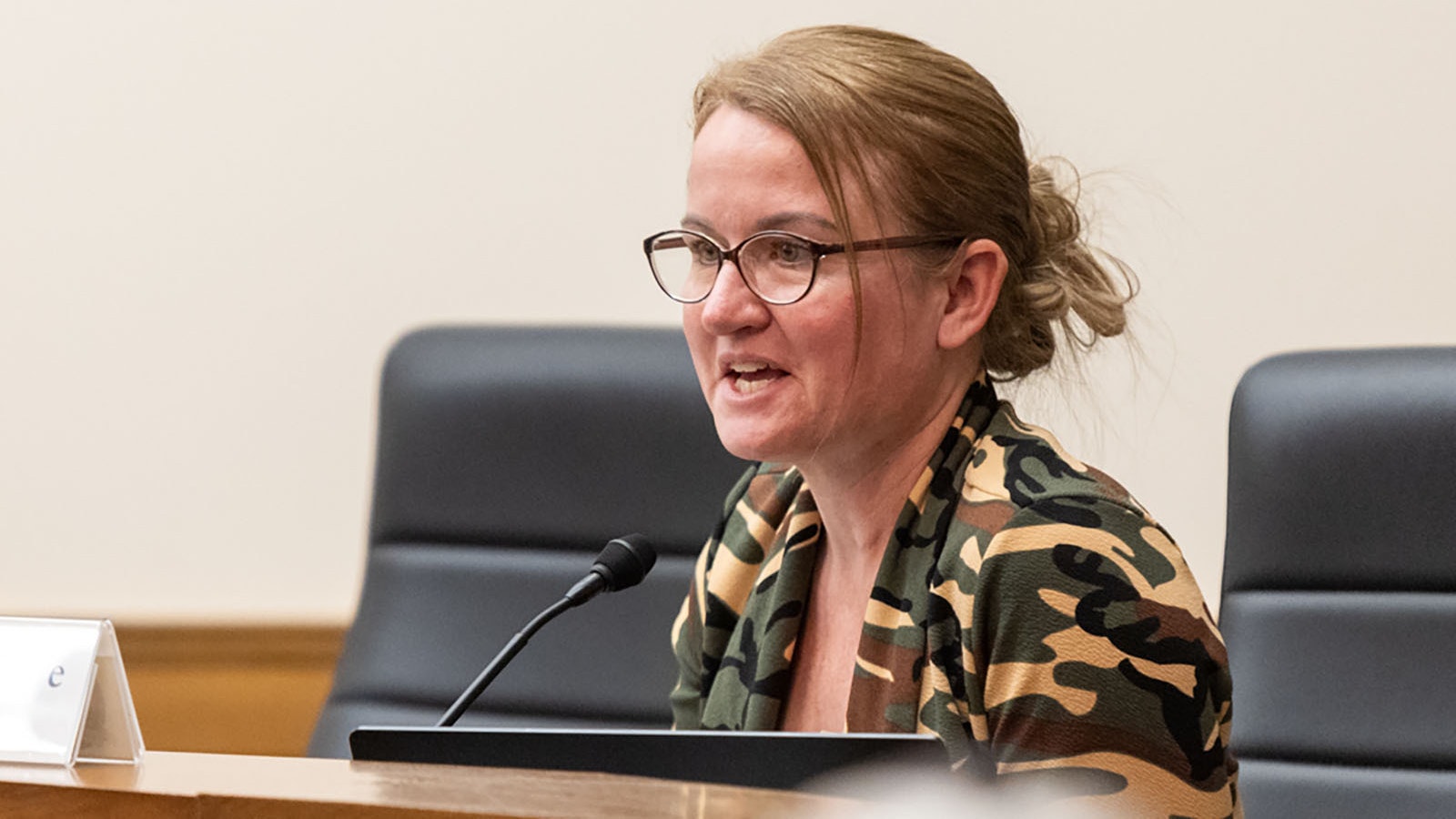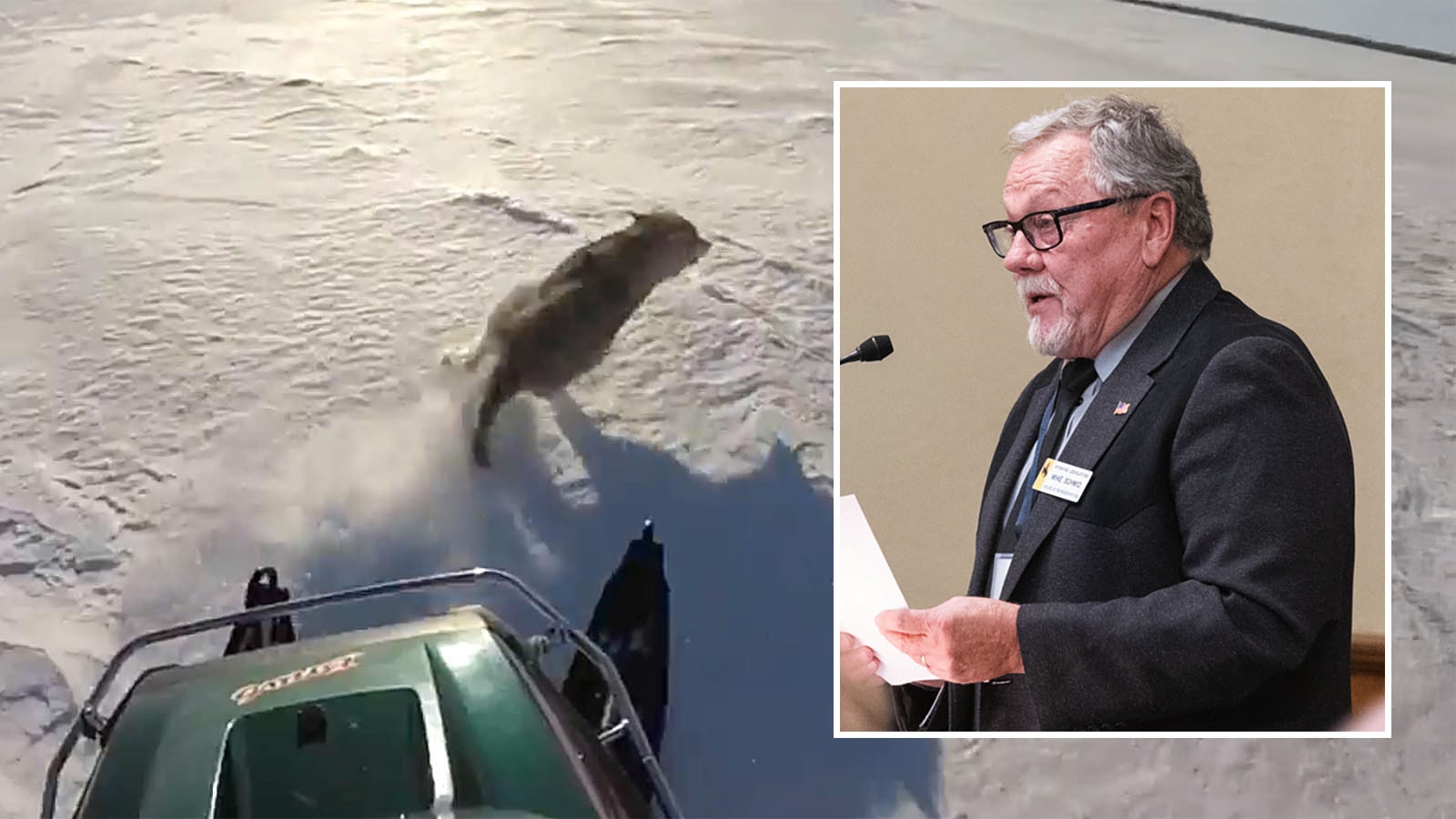Wyoming Secretary of State Chuck Gray wants to know why the state isn’t doing more to open export terminals for Wyoming coal, while Gov. Mark Gordon says his “all-of-the-above” energy policy is paying off.
An ongoing rift between the Cowboy State’s top elected officials was evident Thursday when both appeared separately on the Cowboy State Daily Show with Jake Nichols.
They offered sharply different perspectives on how the state should capitalize on the President Trump administration's pro-fossil fuel energy policies, even as a major California coal export terminal cleared another legal hurdle.
Their comments came as the Oakland Bulk and Oversized Terminal (OBOT) received a significant legal victory that could open up Wyoming coal exports to Asia.
The California Court of Appeals rejected the City of Oakland's appeal late last month in a 57-page opinion by Judge James Richman, upholding a lower court decision that reinstated OBOT's ground lease and gave the company 2½ years to begin construction on the West Oakland waterfront.
The ruling represents a breakthrough for Wyoming coal producers who have struggled to find cost-effective West Coast shipping options, a challenge that became a point of contention between the state's top officials during their radio appearances.
Export Strategy
Secretary of State Chuck Gray directly challenged Gordon for not pursuing the most cost-effective shipping routes, specifically criticizing what Gordon characterized as a focus on Gulf Coast exports over West Coast options.
"But where are we on advancing the ball at the state level on exporting out of the West Coast, not the Gulf of America, which is not cost efficient?" Gray asked. "I mean, we just got to look at a map. I mean, if you could ask him to look at a map, I think it would help because it is so close — the West Coast of the United States."
Gordon acknowledged the importance of West Coast exports, noting that Wyoming supplies coal to 22 states and exports more than 60% of its energy outside the state.
"We need to get it out to the West Coast, well, the left coast," Gordon said. "We're really pushing to get our energy off of our coasts."
The OBOT victory could resolve this strategic disagreement by providing the infrastructure both officials agree Wyoming needs for efficient coal exports. But opposition to the entire idea of exporting coal remains strong in California, Oregon and Washington state.
In March, a coalition of 86 organizations and nearly 1,000 people signed an open letter declaring, “Coal is the dirtiest fossil fuel on Earth, imperiling the health of workers, endangering communities along rail lines that transport it, and contributing greatly to global warming and climate change.”
OBOT Breakthrough
Emily Arthun, CEO of the American Coal Council, said the Oakland terminal's legal victory represents the best current opportunity for Wyoming coal exports after years of political and legal obstacles.
"Oakland just won another legal challenge. And so that's a positive move for the Oakland port to be fully constructed," Arthun told Cowboy State Daily on Thursday. "The biggest thing that I see in marketing is the ability to ship it out of the West Coast. We have to have a port off the West Coast, and it has to be cost-effective for coal to be exported."
The OBOT project has faced sustained opposition from Oakland city officials, who challenged the terminal operator's ground lease multiple times in court.
An earlier ruling denied OBOT's $159.6 million damage claims but granted injunctive relief reinstating the lease and allowing construction to proceed.
OBOT's victory contrasts sharply with setbacks at other West Coast facilities.
Arthun noted that a Richmond, California, port "elected to not pursue it any further" after legal challenges, while efforts to open the Millennium Bulk Terminal in Washington state "were met by opposition within the state government."
"So Oakland right now appears to be the best opportunity," Arthun said, explaining that alternative routes through Mexico's Guaymas port or the Panama Canal add prohibitive shipping costs for Powder River Basin coal.
Competing Visions
The separate but dueling interviews with Gordon and Gray extended beyond export logistics to fundamental questions about Wyoming's energy future under the Trump administration.
Gray praised Trump's recent executive order ending federal subsidies for wind and solar energy, calling renewable energy projects "a woke clown show."
"We saw this tremendous executive order here, Jake, on Tuesday to end subsidies for wind and solar," Gray said. "We are on the side of President Trump and trying to push back on this woke joke."
Gordon defended his administration's "all-of-the-above energy approach," arguing that Wyoming should develop all its energy resources, including wind and solar, alongside traditional fossil fuels.
"I think it's important that we use all of our energy," Gordon said. "There are plenty of places in Wyoming that have absolutely no mineral opportunities or very few and very expensive to develop.
“But if I'm a property owner and I want to be able to develop that, within reason, I should be able to do what I want to on my private property."
The governor detailed recent progress with Japan, which recognizes the need for coal in its energy portfolio despite net-zero carbon commitments by 2050.
"If you use Powder River Basin coal in a Japanese power plant, you not only have less sulfur, less ash, better quality coal, but you also end up reducing your CO2," Gordon explained.
Industry Momentum
The potential for a port in Oakland comes as the coal industry experiences what Arthun described as entirely positive conditions under the Trump administration.
"There's nothing but positive right now coming out of the administration and the support for coal," Arthun said. "They've halted the retirement of coal plants currently, and they're looking at bringing retired plants back into service to strengthen the grid."
Recent data from Wyoming's Economic Analysis Division supports the optimistic outlook for coal, which is most competitive when natural gas prices hover around $3 per million British thermal units.
On Thursday, the state’s Economic Analysis Division released data showing exactly that, according to two of the industry benchmarks. The Henry Hub price for June was $3.02 and the Opal Hub price as $2.62.
"I've seen reports saying it's going to stay there and over there. So that's always good news for us because they have a large export market,” said Arthun.
Parting Shots
The political backdrop to the dueling interviews with Gordon and Gray remains the energy industry landscape and the politics around it in Wyoming.
Gray remains a staunch critic of the Sidewinder and Pronghorn wind, solar and hydrogen fuel projects, which Gordon supports.
“It’s not consistent with reality and with what the people want,” Gray said during Thursday’s interview. “We need to divert it back to the issue, not sort of the line that the pollsters bring out to try to get the people on board, but the issue itself, which is that these wind and solar industries are being propped up."
Gary is referring to Gordon’s repeat statements about supporting an “all-of-the-above” energy policy.
“It is a line that has some resonance because it has a facade, right, of sort of appearing to be reasonable when it's exactly the opposite,” said Gray.
Meanwhile, Gordon didn’t back down from his signature energy platform.
“More than 60% of our energy goes to consumers out of the state,” said Gordon. “They help our economy. We want to make sure all of our energy sources are still there."
David Madison can be reached at david@cowboystatedaily.com.





